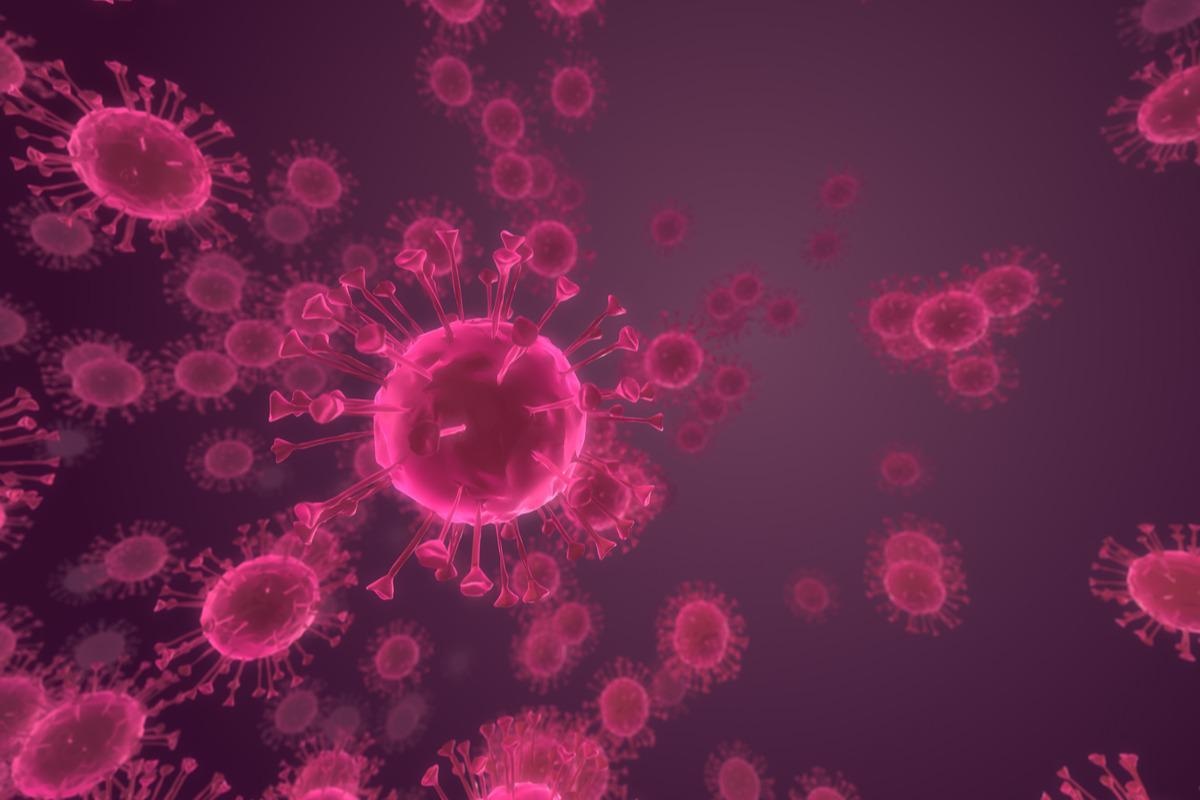Severe acute respiratory coronavirus 2 (SARS-CoV-2), the novel coronavirus that first emerged in Wuhan, China, evolves with new mutations over time, some of which either enhance or alter infectivity, transmissibility, and severity of associated disease(s).
 Study: Understanding the Driving Forces That Trigger Mutations in SARS-CoV-2: Mutational Energetics and the Role of Arginine Blockers in COVID-19 Therapy. Image Credit: Drehstrom/Shutterstock
Study: Understanding the Driving Forces That Trigger Mutations in SARS-CoV-2: Mutational Energetics and the Role of Arginine Blockers in COVID-19 Therapy. Image Credit: Drehstrom/Shutterstock
To enable prioritizing in global monitoring and research, mutants of SARS-CoV-2 were characterized as “variants of interest” (VOI) and “variants of concern” (VOC) at the end of 2020. As of April 28, 2022, the VOCs identified are – Alpha, Beta, Gamma, Delta, Kappa, Lambda, and Omicron. Although more than hundred-odd S-protein mutations have been documented as VOIs and VOCs, only a small subset renders significant amplification of the pathogenicity.
The study
A recent study published in Viruses aimed to describe the roles of certain specific mutations in SARS-CoV-2 strains, with respect to their ability to conformationally stabilize S-protein structure resulting in an enhanced receptor-binding domain (RBD)-angiotensin-converting enzyme (ACE2) binding.
The study was conceived based on the fact that ACE2 and Angiotensin II, are implicated in coronavirus disease 2019 (COVID-19) pathogenesis.
Here, possible treatment strategies for COVID-19 were also proposed – with angiotensin receptor blockers (ARBs) and with sartan-like drugs––bisartans.
Findings
The results showed that arginine blockers like bisartans – which harbor two anionic tetrazole groups, can efficiently prevent RBD and ACE2 receptor interactions, as well as impede the hydrolysis of the SARS-CoV-2 entry points (furin and 3CLpro cleavage sites).
In addition, hydrogen bonds, π-π interactions, and salt bridges enable enhanced binding of certain RBD mutants to the ACE2 receptor. Non-equilibrium steered molecular dynamics (SMD) simulations were consistent with the molecular dynamics (MD) results that predicted which RBD mutants strongly bind to the ACE2. A region of enhanced RBD binding was also uncovered around the Ser19 N-terminus (of the ACE2 receptor).
This region, called “strong-binding domain” (SBD), was the last to fully segregate in the simulations. Thus, rational mutagenic engineering involving the SBD may aid in modulating ACE2 binding sites and could serve as potential therapeutics against COVID-19.
The Delta variant proved to be more infectious and harbors L452R dominating mutation that strengthens the binding between RBD and ACE2, relative to the Alpha (N501Y) mutation. Therapeutics must target disruptions of binding.
Dominating mutations that are deemed as VOCs bind more strongly with ACE residues. The same is true for the Delta variant that sustains dominating mutations of T478K, L452R, P681R, and E484R and exhibits stronger binding with ACE2 receptor site and has emerged as more aggressive and infective. These strong bonds are formed between the positively charged amino acid groups of the virus and the negatively charged groups of the ACE2 enzyme carboxylates, through salt bridges.
The intermolecular interactions between the RBD and the ACE2 receptor disclose underlying forces driving the mutations. Meanwhile, the binding domain between SARS-CoV-2 and ACE2 could be targets for SARS-CoV-2 treatment. Therefore, ARBs that bind to ACE2 could inhibit the entry of RBD S protein to the ACE2 enzyme, and hence, could be a potential treatment for SARS-CoV-2.
P681R S-protein mutation is said to boost the replication potency of the Delta variant. While in both, Delta and Omicron variants, the 679-686 site furin mutations render more basic mutants. This protein mutation – a hallmark of the Delta VOC, also increases the number of arginines (RRRARS) and facilitates cleavage, and enhances viral pathogenicity.
The lower the arginines at the cleavage site lesser the severity of infection. Thus, arginine blockers, for example – ARBs or bisartans, could be effective therapeutics against COVID-19.
Repurposable drugs that impede the RBD-ACE2 complex and decrease SARS-CoV-2 infectivity and transmissibility are ARBs. These drugs deeply impinge the ACE2, comparable to AngII, and act as allosteric inhibitors that impede the RBD-SARS-CoV-2 complex.
Bisartan A and telmisartan have demonstrated the highest binding energies, which precede losartan and candesartan. Evidence also suggests that ARBs lower the morbidity and mortality rates in hypertensive patients infected with SARS-CoV-2.
New generation of ARBs – bisartans with two biphenyl tetrazoles, have now been developed. These drugs are potent antagonists of AT1R that harbor powerful tetrazoles. Bisartan A binds to the amino acids in the ACE2-open channel (near the zinc-binding motif). The interactions involved are – π stacking of the aromatic group of bisartan with Tyr202; H-bond between the Tyr202 and N atom; and salt bridges.
Additionally, bisartan A binds to ACE2. Moreover, an effective blockade of binding of the S protein to ACE2 can occur if the resultant arginine mutant residue is obstructed through arginine blockers. For this, bisartans (with two tetrazoles) could be the ideal candidates. Experiments through bioassays have revealed that bisartan BisD inhibits SARS-CoV-2 infection.
In conclusion, arginine blockers, for instance, bisartans, that block RBD arginine mutants as well as Zn2+ ACE2 show potential as promising therapeutics for COVID-19. Moreover, bisartans act at three targets and hamper viral infection and replication, ACE2, furin, and 3CLpro, and could be considered as molecules for future trials.
Journal reference:
- Ridgway, H., Chasapis, C., Kelaidonis, K., et al. (2022). Understanding the Driving Forces That Trigger Mutations in SARS-CoV-2: Mutational Energetics and the Role of Arginine Blockers in COVID-19 Therapy. Viruses. https://www.mdpi.com/1999-4915/14/5/1029/htm